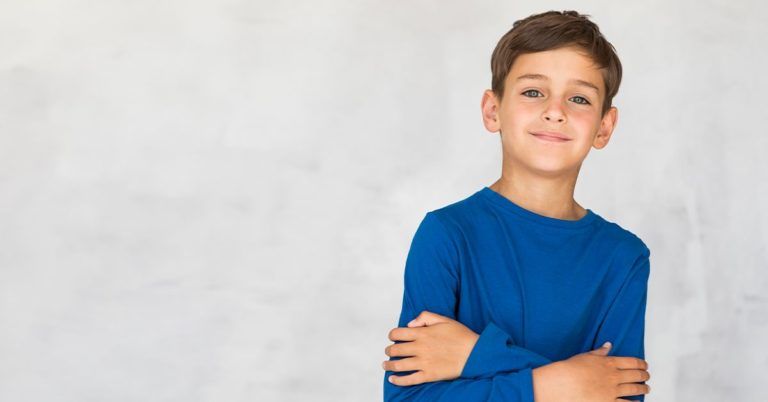The challenges of our time - a fast-paced everyday life, for example, the flood of information and the constant use of technology - can have consequences for hypersensitive children that should not be underestimated. Because these children very sensitive to various environmental stimuli (noise, light, textures and even smells) react, living in a noisy, urban environment and excessive use of social networks can often lead to difficulty concentrating, difficult emotional control, nervousness, stress, but also anxiety.
With an appropriate one Support and understanding of parents However, as well as good cooperation with teachers and the environment, hypersensitive children can very successfully face the challenges of the modern world and develop their full potential in the best possible way.
How do you recognize a hypersensitive child?
Hypersensitivity is defined in science as a physical, mental and emotional reaction to external or internal stimuli. Hypersensitive children not only react intensely to noise, light or touch, but can also show other symptoms such as: E.g.: Difficulty controlling emotions, loss of concentration when studying or working in a group, insomnia, slow adaptation and acceptance of changes, sensitivity to pain, constant worry and caution, and a frequent need for routine.
Although hypersensitive children are often considered less social and shy described, their hypersensitivity is by no means an indicator of future failures. Quite the opposite! Hypersensitivity is a potential that, if properly developed, can bring great success! Thanks to their ingenuity, their creativity, their intuition and their empathy These children can grow into outstanding artists, humanists and often future leaders!
Useful tips for raising highly sensitive children
The challenges in raising highly sensitive children are great, especially for parents who are not highly sensitive themselves. But with the right strategies and expert advice, it is possible to create an inspiring and positive environment from which the child can get the most benefit. That's how it works:
- Offer your child a lot “Rest time for enjoyment” – Give your child more breaks during learning (if you notice that he is overwhelmed and anxious), and also provide him with enough free time to spend on quiet activities and in an atmosphere that suits him best pleases.
- Adapt to his routine – Creating a routine helps children feel safe and secure. So, if possible, try not to disrupt his plans and respect his pace and habits. Avoid frequent changes of plans, unannounced guests, and unexpected activities that the child is unprepared for and dislikes.
- Talk about emotions – Children often don’t know how to describe their feelings. So lead by example – verbalize your needs, your current feelings, talk about fears, desires and worries through a very positive attitude and acceptance. Allow the child to open up and support him in doing so.
- Praise every progress – Every child likes to be praised, so whenever you get the opportunity, praise your child’s progress – show how much you love and appreciate every effort and commitment.
- Educate those around you – Don’t forget that you are not alone on this journey and that your family, friends and teachers are also your “supporters” (or: their support). Help them to accept your behavioral model and thus support you in your upbringing. Speak openly with them about this topic, but also about your ideas, plans and uncertainties. Let them help you find the best behavior model, but also suggest a leisure program and activities that meet your child's needs.
The BrainOBrain programm is ideal for the development and support of hypersensitive children, as our teachers - in addition to mental arithmetic and the VAK learning method - use the most modern NLP techniques that help children understand and communicate their needs and wishes and achieve their goals more effectively to reach. NLP techniques are also used in working with children who have special (or: special) needs, such as: B. ADHD, autism and other psychological impairments. This helps them adapt better to everyday situations.
If you would like to find out how we can achieve this, while at the same time providing your child with quality leisure time in a creative and stimulating environment full of care and understanding, arrange one free course.






